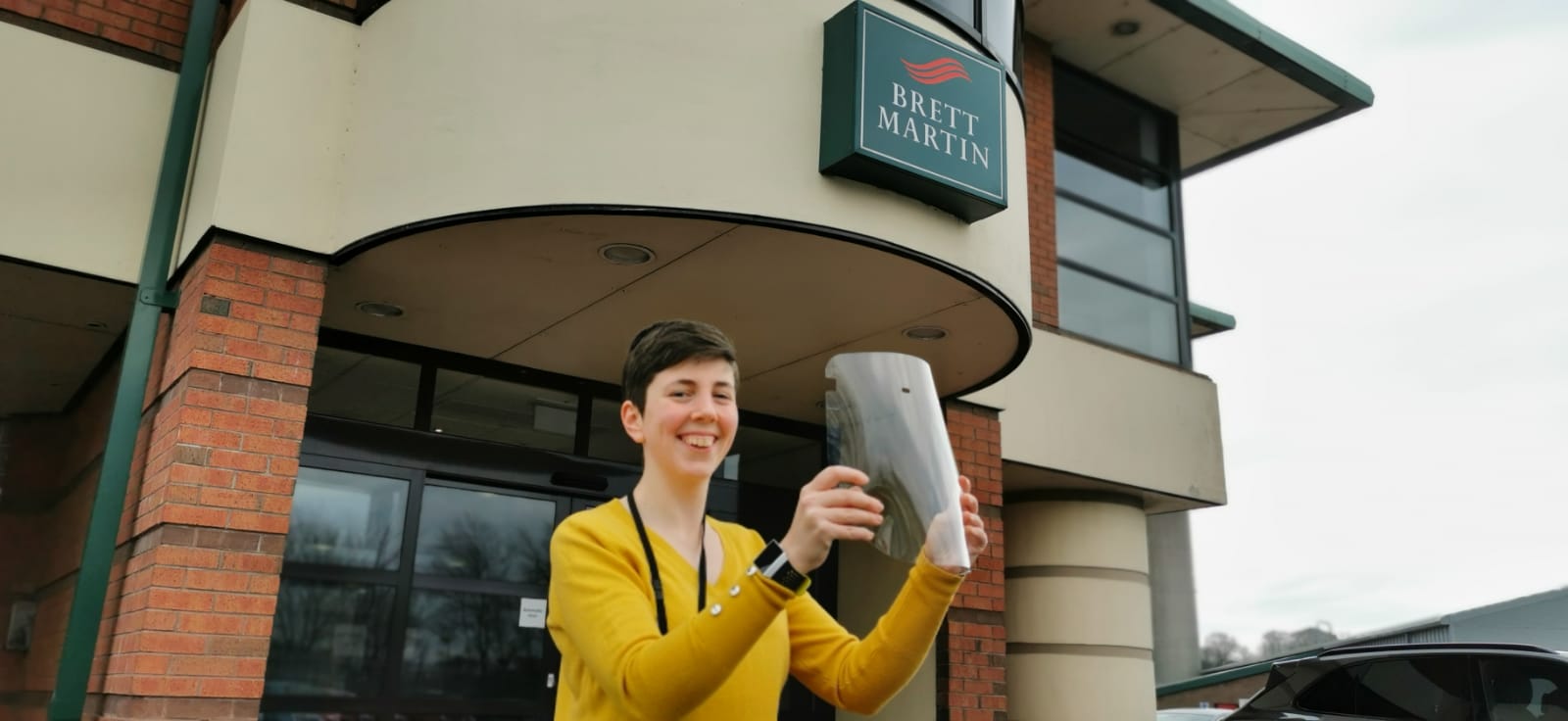The County Antrim-headquartered business makes plastic materials for a wide range of applications, including printing and graphics, plumbing and drainage, and for glazing.
Its manufacturing site in County Antrim is believed to be the largest single-site polycarbonate extrusion facility of its kind.
Sales director Duncan Smith said demand had increased enormously in the past couple of months, due to the extra measures being taken by businesses due to Covid-19.
“Ever since March when screens started going up – in Europe first and then the UK – every single sheet of transparent material has been snaffled up,” he said.
“We are basically full until the end of the year on solid, acrylic, polycarbonate and styrene transparent materials, and a lot of it will end up in the UK.”
Smith said that for new orders the business was now working to December/January delivery dates, and the firm was working around the clock to meet demand.
“The factory is working 24/7 and is flat out on most products,” he stated.
“The biggest issue at the moment is extrusion capacity. We are shipping hundreds of tonnes every day to our distributors.”
Smith said that some of its products typically used for different applications in normal times, such as glazing sheets that are not totally transparent, were also being used instead for applications such as dividers.
“Where people can’t get the polycarbonate product of choice customers are looking at where they can use alternatives. We’re seeing a big increase in thick PVC foam in 10mm or 19mm thicknesses for separation panels, and that’s where printers can get involved. I’m sure there will need to be decals and signage that needs to be attached to these things.
“We’re seeing people come up with innovative ways of using the materials that are available, such as our Multiwall product that’s used for conservatories. It can be used for bigger barriers as it comes in very big sheets, and it can be installed quickly because the fixing systems are readily available.”
Smith also pointed out that demand for some types of plastics were effectively being reallocated, and some markets such as building had slowed down.
He said the type of material used for supermarket ‘sneeze screens’ would usually be used for machine guards, and that market had reduced considerably due to the virus crisis.
Similarly, the thin transparent plastic now being used to make PPE visors (see below) would have been used for mineral water bottles previously, with sales of that product category down due to lockdown.

Brett Martin employs 800 staff and had sales of £171m in its most recent financial year. The group also has manufacturing sites in Coventry and Staveley in Derbyshire.
Businesses across the country are working to make workplaces 'Covid-secure' after the government published new guidance last week.
The British Plastics Federation also issued a statement about potential shortages caused by the need for vast amounts of plastic products because of the virus crisis.
In a statement, the federation said: “We have made further enquiries into this issue in the past few days as part of broader ongoing work to advise the government about supplies of numerous plastic products ranging from surgical masks to components for ventilators.
“Demand for large protective screens has obviously increased and the various companies within the UK that supply these plastic sheets are doing everything they can to try to meet demand. These sheets can be made from several different types of plastic – acrylic, polycarbonate and PETG are the main ones – all of which are produced within the UK, although it is worth noting the UK has for many years relied on imported material to boost domestic supply.”
The BPF said some companies were reporting difficulties in getting hold materials and extended lead times. It said it would “continue to monitor this complex situation as best we can to advise the government about the supply of these and other essential plastic products.”










